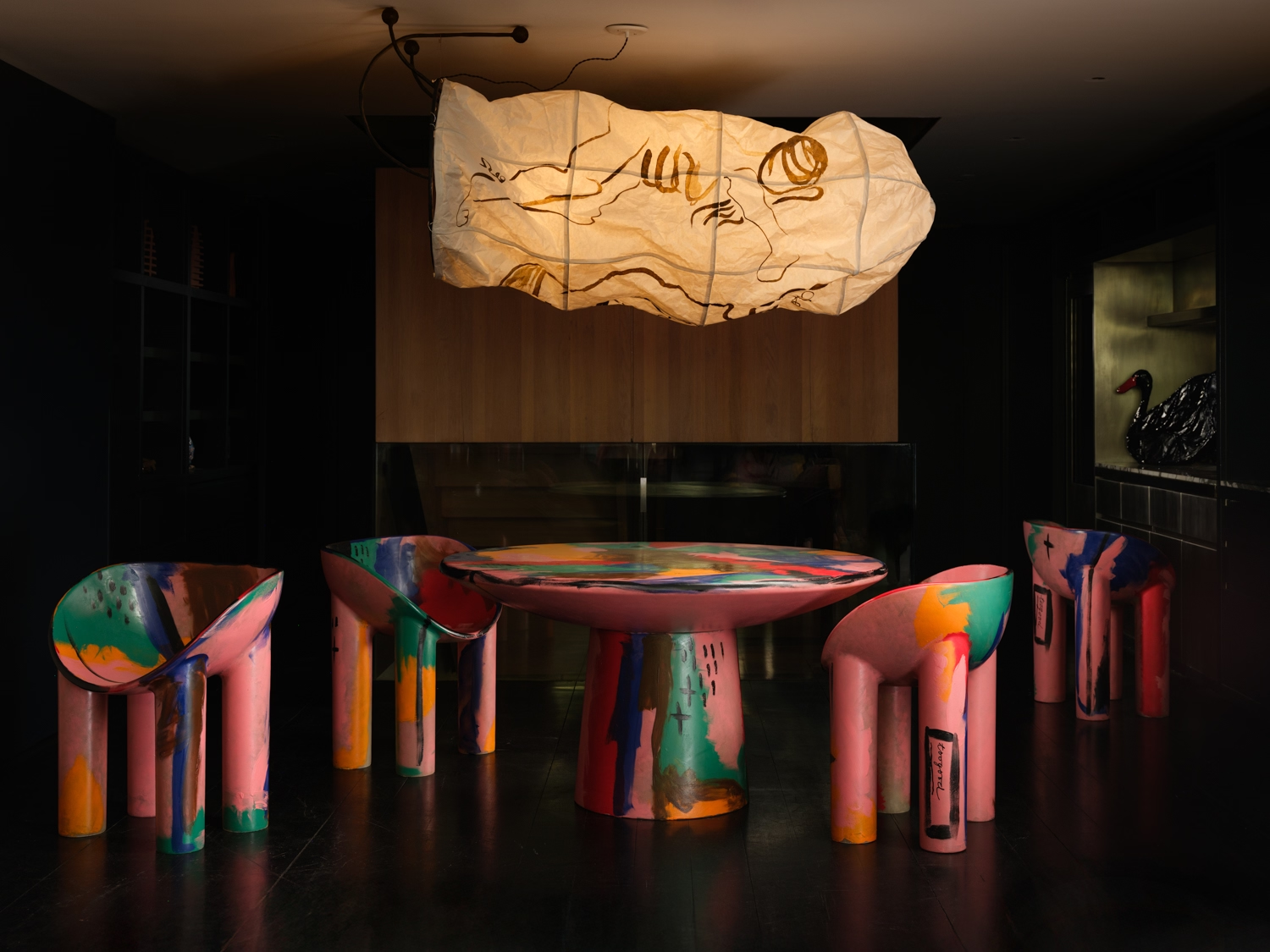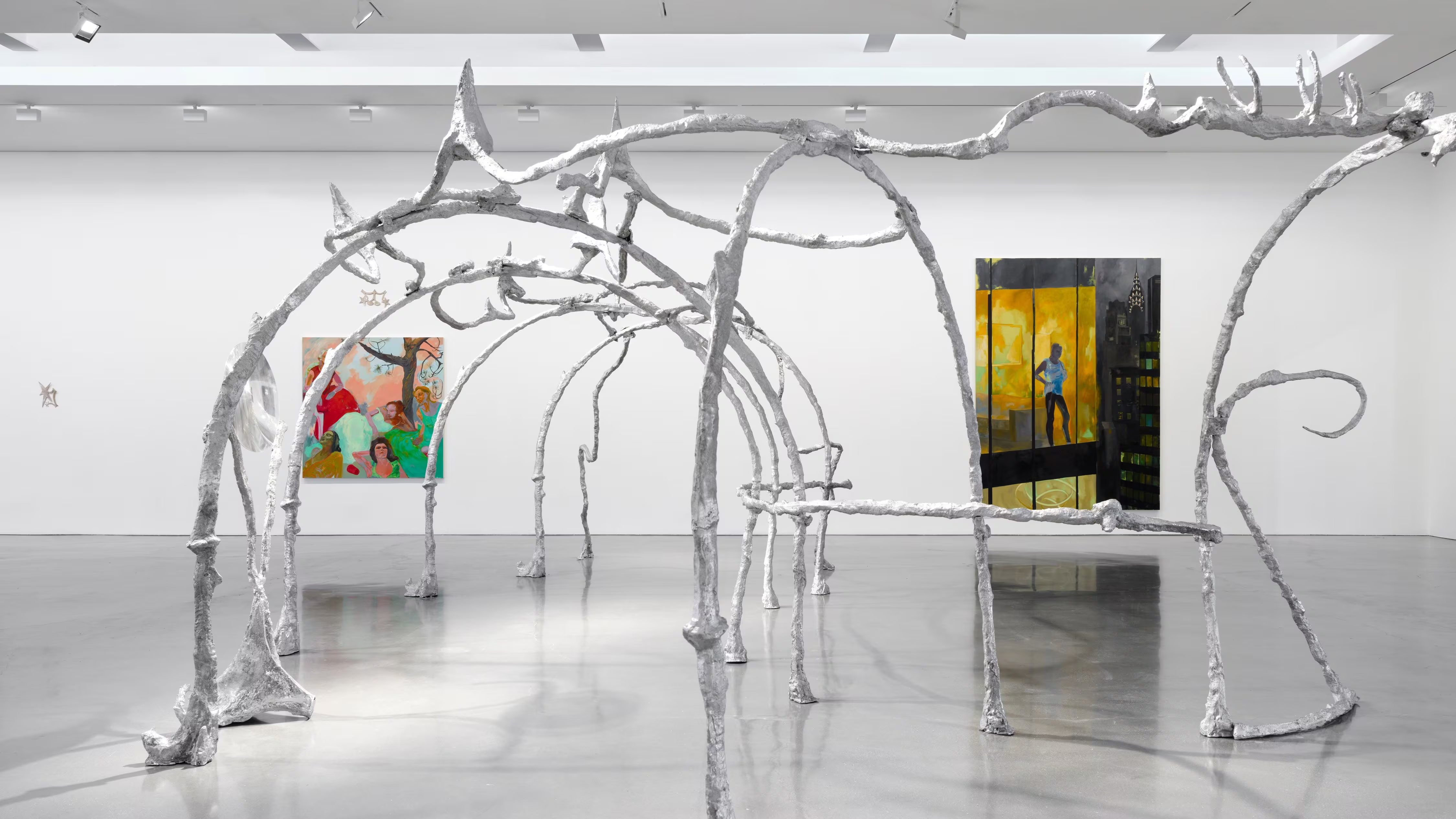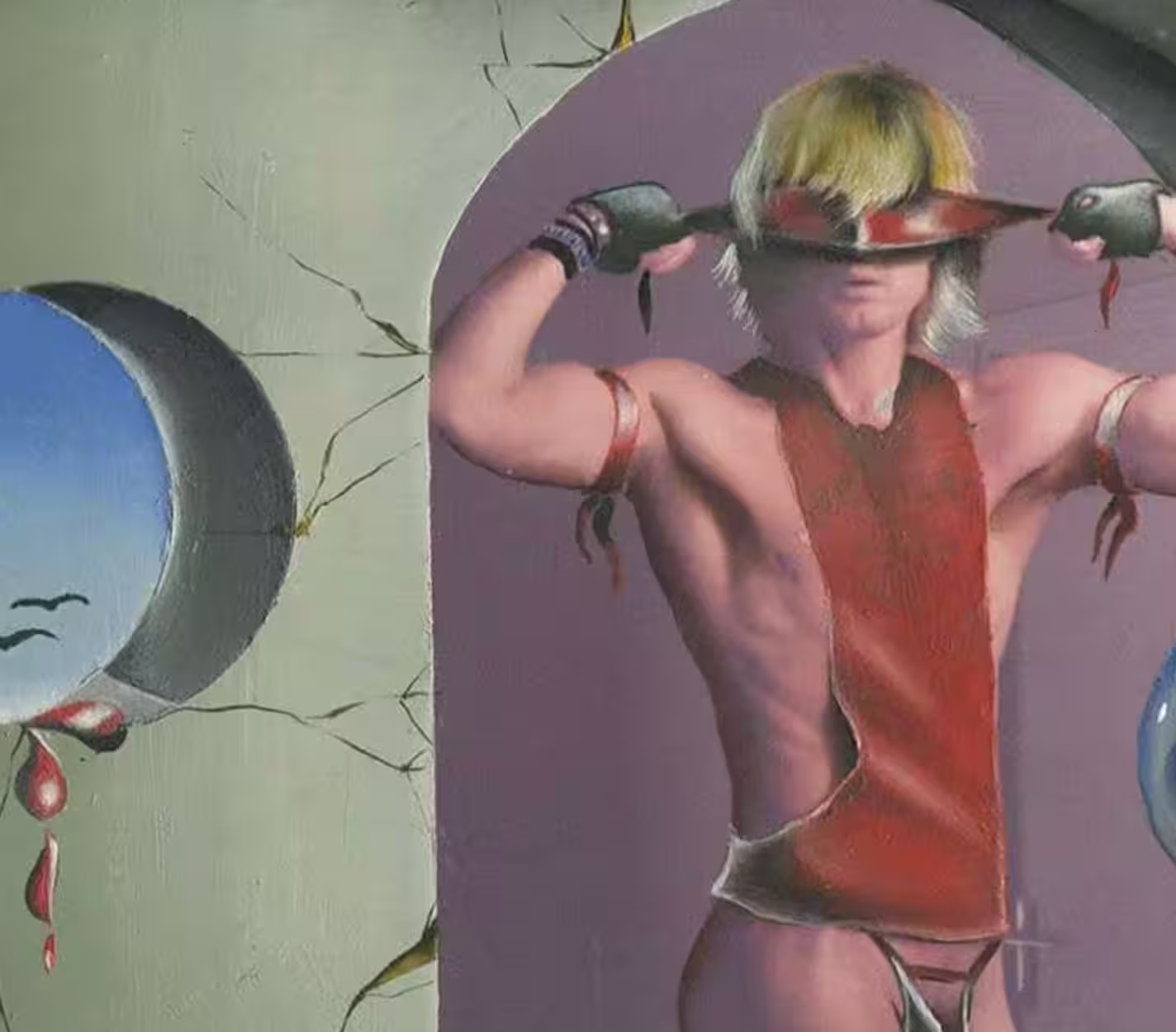
Sit at your dining room table with a pen, some stamps, and a box of postcards. Write. Say hello to a new friend who, for whatever reason, believes in you. Scribble a few sentences to another friend who’s just bought his first home. Suggest this postcard is meant for his new fridge. Find the bluest postcards in your pile (a photograph by Luigi Ghirri, a painting by Helen Frankenthaler) and send those to your friend in Paris who loves the color blue, especially when it’s placed next to brown. Everywhere you go now, you see blue and brown, but when that friend calls, you never answer the phone. Find a postcard with a white flower. Consider what you might say to your friend who has just lost her mother.
Visit the penguins. Stand close to the glass and train your eyes on the little one whose steps are slow and watchful. Start to worry when the little one inches close to the edge of a rock. Look for his mother. Realize you don’t know who she might be. Fear he might fall into the water. Look around, panicked, to see if anyone else has noticed the little penguin on the edge of the rock. Everyone is looking elsewhere. Some days are like this, where it’s as if you and the penguin are the last ones left. The older you get, the more you can tolerate these moments.
Walk the long way home. Find the small knoll just west of the city’s train tracks, the knoll you used to push the stroller up, slowly as the baby slept. Near the top, you’d call your father on FaceTime and show him the baby, the passing trains, and the city’s sparkling scene: distant buildings made of glass, a mountain everyone knows. You cannot call your father anymore, and the baby no longer likes his stroller, and even the knoll feels—somehow—more steep, like something to defy.
Sit on your aunt’s couch and watch as all the baby cousins play. They are making ice cream and serving it in their palms. The flavors are blueberry, egg, lemon, and dirt. When you ask for strawberry, you are firmly told there is no such thing. Stop being silly, the baby cousins say to you.
Write this: She picked up a couple things from her mother: how to be observant yet seem unfamiliar at the same time, how to invite guests over for dinner and never bother tidying the house. She knew that one day, a friend might bring over a teenage daughter for dinner, and she knew that daughter would remember, forever, the house with a host who never tidied. She often thought about being remembered by someone’s teenage daughter. She made many decisions this way.
Watch The Red Shoes [1948]. Marvel at its image, at its claim to colors. Find yourself spellbound, the opposite of at ease. Although you’ve seen it many times, you suddenly feel a strange agitation, like you are further away from knowing how to make anything, let alone anything good. The film upsets you because it delights you. You decide to write a movie about three people. That’s all you have, three people.
Draw with chalk. It is never satisfying.
Write this: She’d run out of room. On her shelves, books were stacked in columns, wedged sideways, and layered in rows. Her smaller paperbacks were warped from the squeeze. In her bathroom, her cabinets were deep with bottles and tubes, towels and spray stuff, and little travel pouches with smaller bottles, tubes, and more spray stuff. In her kitchen, the pantry was heavy. Cans, jars, the weight of spaghetti and other things in sacks that might sag. In her closet, there were what looked like mutations of black sweaters. She could smell their wool—not bad, not fresh. She stored bags in other bags, and shoes, regrettably, on top of other shoes. On her desk, there were more books, a few opened envelopes, and shrine-like formations of postcards and photos. While her desk was a sentimental space, she’d forgotten long ago who gave her those two seashells and the small rock. Looking around her apartment, there was no mess, no real clutter, but there was also no room. She felt the difference was worth noting. Like most things, she felt the difference was unremarkable to everyone else yet prohibitive to her.
Write this: Her favorite episodes involve cases where the lawyers must work on weekends, arriving at the office wearing pale blue jeans. Pale blue jeans set free her imagination. Pale blue jeans are a personal anecdote, like seeing into the lawyer’s linen closet. Or finding out the lawyer rides a motorcycle. Or discovering that the lawyer wears an apron when he cooks tomato sauce. Seeing the lawyer arrive at the office with his briefcase, wearing pale blue jeans, is like learning he licks the spoon. Even if you’ve never seen it, now you can.
Listen to the Wim Wenders episode of the Team Deakins podcast. Enjoy the parts where he talks about finding his own locations, about how road movies are made on the go, and how Wim had to join the Teamsters Union because he refused to be driven. Realize you love hearing about loopholes and solutions and directors who stop at nothing. The way out is often the way in. Find courage in that.











.avif)








.avif)


_result_result.avif)



.avif)

_result_result.avif)

_result_result.avif)
.avif)

_result_result.avif)


_result_result.avif)


.avif)




.webp)

.avif)

















%20(1).avif)
.avif)




.avif)
















.avif)


.avif)





















.jpeg)

.avif)

_11%20x%2014%20inches%20(2).jpg)







.avif)

.jpg)

%20(1).jpg)
.avif)
.jpg)

.jpg)
.webp)


.webp)



.webp)


.webp)


.avif)











.avif)
.avif)














.avif)









.avif)



.avif)




















-min_result.avif)









.avif)







3_result.avif)
_result.avif)






_result.avif)




.avif)




.avif)













_result.avif)


.avif)

.avif)









.avif)

.avif)










.avif)



.avif)


_result_result.avif)
















-min_result.avif)






.avif)
.jpg)
















_result.avif)

.avif)


.avif)







.avif)





.avif)

_result.avif)



.avif)













.avif)









.avif)


.avif)














.avif)




.avif)








.avif)

.avif)

.avif)



.avif)


.avif)




.avif)

.avif)

.avif)
.avif)
%20(1).avif)
.jpg)

%20(1).avif)








.avif)
.avif)

.avif)






.avif)


.avif)


















.avif)
.avif)
